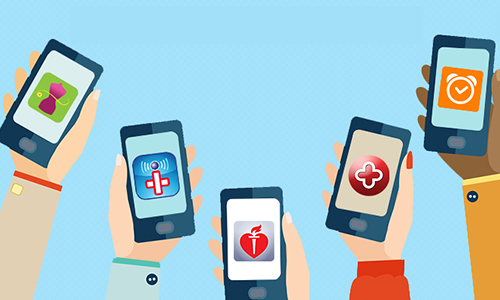Which features of healthcare apps do patients desire most?
April 20, 2018
Source: MedCityNews
 1,051
1,051

A new survey from customer experience agency Verndale found consumers most strongly want healthcare apps to provide the ability to manage appointments. Other most desired features among all patients include providing an alert when an appointment is running late, the ability to refill prescriptions and access to medical records.
Digging a little deeper, the most desirable app feature varied among different patient groups. While females wanted the capability to manage appointments, consumers ages 60 and up most strongly wanted access to their medical records. Parents expressed their most desired feature was push notifications for appointment reminders and announcements.
“[W]here you are in your healthcare journey is dynamic and related to a lot of different things,” Verndale chief marketing officer Tim Linberg said in a phone interview. “The data spells that out.”
Patients are unique, and thus their needs are unique, he added. A 20-year-old college student and a 70-year-old grandmother don’t want the same things out of their app experience.
To gather information, the Boston-based company surveyed nearly 500 U.S.-based patients ages 18 and up.
The report also uncovered 75 percent of respondents would be interested in an app that enabled digital appointments for routine visits. Yet 54 percent of surveyed individuals said they don’t believe they would get the same quality of care out of a digital appointment.
And other research has shown that adoption rates in the digital appointment/telehealth space are still quite low.
Linberg noted that this isn’t altogether surprising. “That gap between interest and adoption is kind of expected from a technology innovation standpoint,” he said.
As these technologies increasingly move to the spotlight, patient privacy becomes a bigger issue. Although half of the respondents said an app that captured health data from wearables and sent it to their doctor was desirable, 70 percent expressed concerns over sharing their medical information via a mobile app.
“That lack of absolute trust is well founded,” Linberg said. “Until the privacy part and the data security part get rectified, it’s going to be really hard to drive adoption.”
Additionally, the Verndale report revealed 55 percent of consumers are somewhat or very interested in an app that gives personalized content based on their health profile.
Thus, Linberg narrowed in personalization as a key survey takeaway for healthcare executives. Though it’s a bit of a buzzword in the space, investing in it can enable “more relevant and timely … touchpoints for the patient,” he said. “There should, in fact, be an opportunity for my app experience and your app experience to be completely different.”
By DduRead more on
- Disposable Medical Products that Keep Your Medical Facility Clean and Sterile March 31, 2022
- 10 Triumphant Drug Launches Of The Decade August 26, 2021
- How Central, East Africa’s tech renaissance is shaping its healthcare future June 4, 2019
- Ultrasonic Nebulizer Market Views September 6, 2018
- 4 Best-Selling Digital Thermometers on Drugdu.com in 2018 September 5, 2018
your submission has already been received.
OK
Subscribe
Please enter a valid Email address!
Submit
The most relevant industry news & insight will be sent to you every two weeks.



